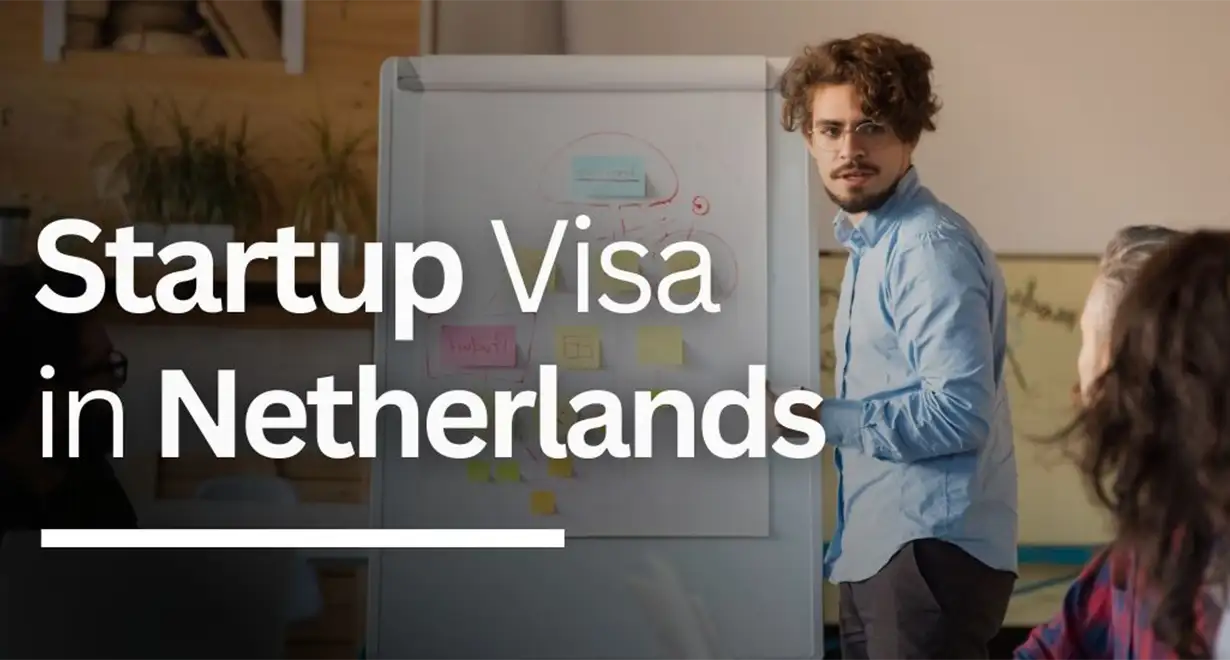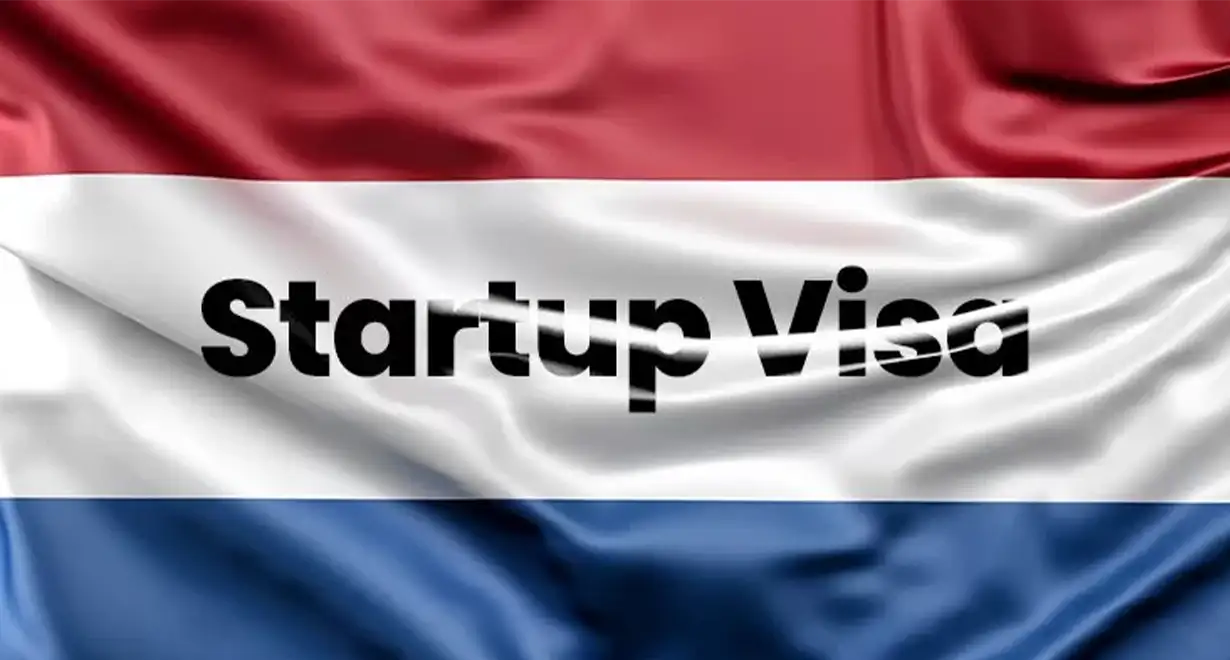Netherlands Startup Visa
The Netherlands offers an ideal environment for launching a startup based on a unique, innovative and commercially viable concept. Through its Startup Visa scheme, the Dutch government invests in promising ventures and, in return, grants founders (and their families) a temporary residence permit, renewable as the business grows.
In 2023, Dutch startups generated more than USD 2.2 billion in funding across 414 deals (up from 393 in 2022) and created 151,000 jobs domestically (256,000 globally).
Major global tech players—Tesla, Meta, IBM, and Google—also maintain significant operations in the country, underscoring its role as a thriving innovation hub. If you’re planning to establish a European startup and want to explore the requirements and step‑by‑step process for the Netherlands, read on for a detailed guide.
To receive professional immigration consultation, please fill out the form below:
Requirements for Obtaining a Netherlands Startup Visa
The Netherlands stands out as one of the top European destinations for immigration, offering unique opportunities for foreigners to establish innovative startups. To qualify for the Netherlands Startup Visa, applicants must meet the following criteria:
General Immigration Requirements
- Valid Facilitator: You must have an experienced facilitator who specializes in guiding innovative startups. A formal collaboration agreement between you and the facilitator is required.
- Innovative Idea or Product: You must have a novel and innovative concept or product.
- Active Participation: You need to be actively involved in the registered company in the Netherlands, owning more than one share.
- Business Plan: A detailed business plan outlining the stages of your startup project must be provided.
- Registration with the Dutch Chamber of Commerce: Your name and the facilitator’s must be registered with the Kamer van Koophandel (KvK).
- Financial Resources: Demonstrate sufficient financial means to support both yourself and your family during your stay in the Netherlands.
Important Note: While a language certificate is not required, proficiency in English or Dutch will positively influence the success of your application.
Characteristics of the Innovative Idea or Product
- Uniqueness: The product or service must be introduced for the first time in the Netherlands.
- Problem-Solving: The idea should address a specific problem in the Netherlands with an innovative solution.
- Growth Potential: The startup must have scalability and expansion potential in various markets.
- Technology Use: The idea should leverage new technologies in production, distribution, and/or marketing.
- Economic Contribution: The startup should contribute to the Dutch economy and create new job opportunities.
- Innovation in Operations: The startup must introduce new methods of working and organization.
- Professional Team: A highly skilled and specialized team should be in place to implement the idea.
- Social & Environmental Impact: The idea must tackle environmental or social issues.
Business Plan Features
The business plan submitted with your application should include:
- Organizational Structure and Roles
- Legal Form of the Company
- Company Goals and Market Research
- Sustainable Business Model and Marketing Strategy
- Description of the Innovative Product or Service
- Plans for Company Setup and Operations
Financial Requirements for the Netherlands Startup Visa
- For a single applicant: €19,900
- For a family: €28,500
- In addition, you must demonstrate that you have a monthly income of €1,995, which will apply to each family member (spouse and children).
How to Prove Financial Means
- Bank statements from your personal or business account in the Netherlands.
- Authorizing someone in the Netherlands to open a mailbox-connected (Postbus) account in your name.
- A valid employment contract or evidence of other income sources.
Facilitator Requirements for the Netherlands Startup Visa
Your facilitator plays a crucial role in guiding you through the startup and visa processes. They must meet the following conditions:
- Experience: The facilitator must have sufficient experience in advising innovative startups.
- Financial Stability: They must be financially stable, with no debts or history of bankruptcy.
- No Significant Stake: The facilitator cannot hold a significant share in your startup.
- No Close Family Relationship: The facilitator must not be a close relative (parent, child, grandparent, uncle, aunt).
- Replacement within the Organization: The facilitator must have a designated replacement within their organization.

Steps to Obtain a Netherlands Startup Visa
To obtain a Netherlands startup visa, you must follow the steps below:
Review the Conditions: The process of starting a startup in the Netherlands begins with reviewing the conditions outlined earlier in this article. At Gala Path, this phase involves brainstorming your innovative idea and assembling your startup team. Gala Path will guide you through the entire process and assist in subsequent steps.
Find a Dutch Facilitator: You must work with an eligible facilitator who meets the requirements detailed in the article. Tip: The RVO agency maintains a list of approved facilitators. You can check the list here.
Prepare the Necessary Documents: To apply for the Startup Visa, gather the following documents (Official documents must be translated into Dutch, English, French, or German):
- Valid passport
- Health insurance
- Criminal background certificate
- Medical health certificate
- Educational certificates
- Work experience certificates
- Business plan
- Agreement with the facilitator
- Proof of financial means:
Payment of Fees: The application fee for the Netherlands Startup Visa is €380, which must be paid at this stage.
Complete the Application Form: Carefully review and complete the application form. You can download the form here.
Receive the Temporary Residence Visa: Before applying for the MVV (Machtiging tot Voorlopig Verblijf) and residence permit, schedule an appointment at the Dutch embassy or consulate in your country of origin or residence. Documents to bring for the appointment:
- Completed application form
- Passport photo
- Valid passport
Occasionally, additional documents may be required. The embassy or consulate will process your application and record the submission date. After this, you will receive your application form along with an acknowledgment and V-number. They will also collect biometric data (signature and fingerprints), which is necessary for issuing your residence permit.
Note: If you already reside in the Netherlands on a short-term visa, you do not need an MVV. In this case, select the “No MVV required” option during the application.
Tip: Children under 12 must visit the embassy with a legal representative (parent or guardian).
Wait for the Final Decision from the IND: The Netherlands Enterprise Agency (RVO) reviews startup applications, while the Dutch Immigration Service (IND) makes the final decision within 90 days (known as the decision-making period). If there is a delay due to an incomplete application, the IND will notify you by mail. You can also track your application through My IND. The IND will consult with the RVO regarding the facilitator, the startup’s innovation, business plan, and registration with the Chamber of Commerce (KvK). A positive opinion from RVO is required for the residence permit. You will receive the IND’s decision via mail, which will be either:
- Positive Decision: You will receive the MVV and residence permit.
- Negative Decision: You will not receive the MVV or residence permit, but you can appeal this decision.
Apply for the MVV Visa and Travel to the Netherlands: Once your application is approved, you need to visit the embassy or consulate where you initially applied for the startup visa to have the MVV stamped in your passport.
Receive the Residence Permit in the Netherlands: After arriving in the Netherlands with the MVV, visit the Dutch Immigration Office (IND) to collect your residence permit. Schedule an appointment in advance. The initial residence permit is valid for one year, but after this period, you may apply for a self-employed person’s residence permit (zelfstandige) if you meet the requirements.
Develop Your Business in the Netherlands (First Year):
- Create the MVP (Minimum Viable Product): Focus on developing your product for the Dutch market after your arrival.
- Register the Company with KvK (Chamber of Commerce): Register your startup with the Dutch Chamber of Commerce (KvK) and obtain your commercial registration number.
- Attract Investment: Connect with investors and startup networks to secure the necessary capital for growth.
- Provide Progress Reports: Maintain regular communication with your facilitator and submit progress reports, demonstrating that your startup is making strides.
Important Points After Arrival in the Netherlands with a Startup Visa
Register Your Address and Obtain a BSN (Citizen Service Number):
Within five working days, register your address with the municipality (Gemeente). After registration, you will receive a BSN number, which is necessary for all official transactions.
Required Documents:
- Valid passport or ID card
- Visa and residence documents
- Rental contract
Open a Bank Account:
After receiving your BSN, open a bank account with a Dutch bank (e.g., ING, ABN AMRO, or Rabobank).
Required Documents of Netherlands Startup Visa:
- Passport
- BSN number
- Address proof
- Startup visa documents
Purchase Health Insurance
Health insurance is mandatory. Obtain Dutch health insurance within four months of arrival. Basic health insurance is sufficient, though supplementary insurance can also be purchased if desired.
Register the Company at KvK:
If you haven’t already done so, register your business with the Dutch Chamber of Commerce (KvK), either as a BV (private limited company) or a Sole Proprietorship.
Start Cooperation with an Approved Mentor:
The startup visa requires official cooperation with an approved mentor (Facilitator). Activate this partnership immediately after your arrival and work towards implementing your business plan.
Pay Taxes and Obtain a VAT Number
After registering your company, you will automatically receive a VAT number. Ensure compliance with tax obligations (e.g., income tax, VAT) and consult with an accountant or financial consultant.
Familiarize Yourself with Business and Labor Laws
Learn about Dutch business, tax, and labor laws. Your mentor or local organizations can provide valuable support.
Networking and Building Connections:
Attend entrepreneurial events and networking opportunities to connect with investors, partners, and other entrepreneurs. Platforms like Meetup and LinkedIn can be helpful for finding events and opportunities.
Learn Dutch:
While many people in the Netherlands speak English, learning Dutch will facilitate better communication and business interactions.
Manage Living Expenses:
The Netherlands has a relatively high cost of living, so it’s crucial to have a financial plan and ensure sufficient capital for the first few months.
Apply for Family Residence (if applicable):
If your family is accompanying you or plans to join you later, ensure you have the necessary documents to apply for their residence permits.
Report to IND:
Your startup visa is contingent on the progress of your business. The Dutch Immigration and Naturalization Service (IND) may review your progress. Therefore, keep records of your business milestones.
Conditions for Extending the Netherlands Startup Visa
After one year of operating your startup in the Netherlands, you must transition your visa to a self-employed visa. To qualify:
- Demonstrate that your business is progressing.
- Prove sufficient income.
- Continue developing your startup.
You will need to provide financial reports showing stable income. After meeting these criteria, your visa will be extended for another 2–3 years. After five years of residence, you can apply for permanent residency. At this point, you must show basic knowledge of Dutch language and culture.
Top 10 Startups in the Netherlands
Here are some of the top startups in the Netherlands over the past two years:
- Aidence: AI-driven medical imaging for early disease detection.
- Sightcorp: Specializing in AI-based facial recognition and behavior analysis.
- Quantib: AI-enhanced radiology for medical diagnoses.
- Connecterra: AI in agriculture to boost farm productivity.
- Corti: AI for faster and more accurate emergency medical diagnoses.
- Tractable: AI-powered insurance claims evaluation for vehicle damage.
- SkinVision: AI app for early detection of skin cancer.
- Overstory: AI and satellite imagery to manage vegetation and prevent wildfires.
- Coolgradient: Optimizing energy consumption in data centers using AI.
- Haaven: Creating carbon-neutral small homes.
Why Choose the Netherlands for Your Startup?
The Netherlands offers numerous advantages for entrepreneurs:
- The best tax system in Europe for foreign entrepreneurs.
- A highly skilled and efficient workforce fluent in English.
- Home to major tech companies like Adyen, Booking.com, and MessageBird.
- Eindhoven’s tech hub, fueled by one of the Netherlands’ leading technical universities, produces a constant stream of innovative talent.
- With its excellent business climate, strong international relations, and access to European markets, the Netherlands is an ideal location for starting and growing a successful startup.
- Netherlands
Netherlands Startup Visa
- Amount: $25,000 (Normal Price)
- Process Time: 12 months
- Payment Terms: 40% upon contract signing ($10,000), 40% upon scheduling interview with facilitator ($10,000), 20% after visa submission ($5,000)
Related Service
- Netherlands
Netherlands Startup (Plus)
- Amount: $32,500 (Normal Price)
- Process Time: Approximately 24 months
- Payment Terms: 60% upon contract signing ($19,500), 40% after visa submission ($13,000)



